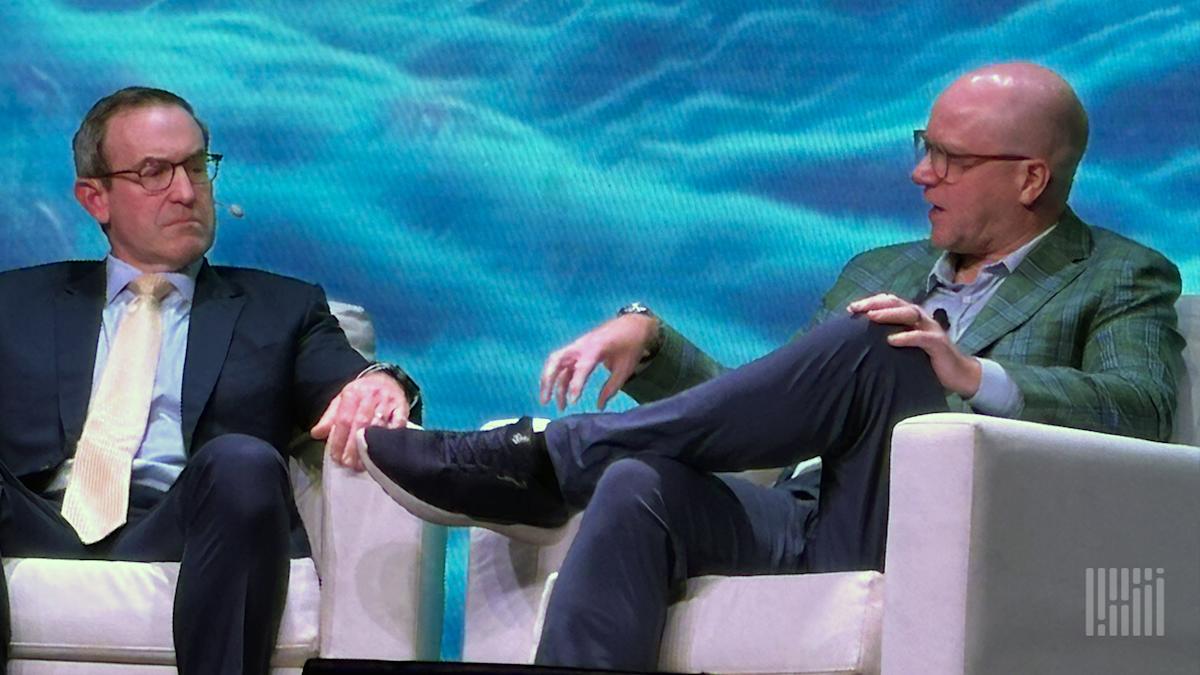CHATTANOOGA–The prevailing idea that the U.S. and China are locked in a trade war is missing the point, according to Leland Miller. What the two countries are engaged in is a war over who controls supply chains and “choke points” for critical products.
At the FreightWaves’ Festival of Freight (F3) conference here, Leland Miller, the co-founder and CEO of China Beige Book International, told FreightWaves and SONAR CEO Craig Fuller during the conference’s keynote that “the most important issue is no longer trade per se. It’s supply chains and who controls key supply chain choke points.”
While the talk has been on tariffs that if fully implemented against China could reach 150%, Miller said the actual tariff rates are no more than 70% on average and they are “quite manageable going forward.”
That brought Miller to what he believes is the key issue in China-U.S. economic relations: supply chain choke points, in critical minerals in general and specifically rare earth elements, vital in numerous high-tech applications. The battle over those supplies have resulted in recent Chinese decisions to limit exports of rare earths.
“China basically said after some pushback in the trade war, no more,” Miller said. “If you keep treating us poorly on the trade side, we are going to start cutting off things you care about, and we start with critical minerals.”
The U.S. has long sought to develop a rare earths industry of its own, and has always come up short. MP Materials (NYSE: MP) operates the rare earths mine in Mountain Pass, California, which has passed through intermittent shutdowns and shifting ownership changes over the years, at one point being owned by oil giant Unocal, which was eventually purchased by Chevron (NYSE: CVX). The U.S. government now has a 15% stake in MP.
The U.S. has limited capability to process the ore after it is mined at Mountain Pass, and Chinese refining capabilities give it the ability to squeeze the rare earths supply chain.
That sort of governmental step–owning a stake in a key asset rather than relying on market forces–marks a shift in U.S. thinking, Miller said. “The playbook for years and years, particularly since the 1990’s, has been that markets should control everything,” Miller said. “I think that most of the time, that’s probably a very good idea.”
But that belief can collide with areas where there are “certain security priorities that we can’t allow to be controlled by the markets,” Miller said.
Part of the problem with the current market structure, Miller said, is that China can squeeze the supply chain not by withholding supplies but by making economic returns unpalatable.

